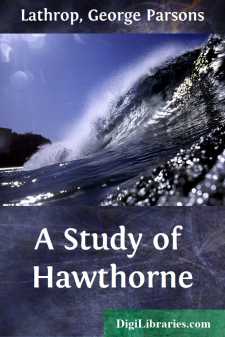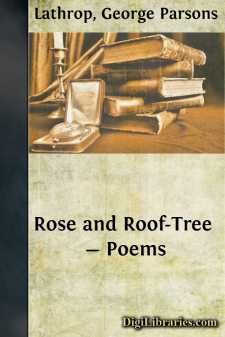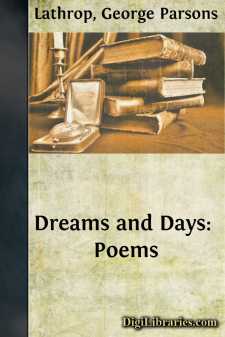Categories
- Antiques & Collectibles 13
- Architecture 36
- Art 48
- Bibles 22
- Biography & Autobiography 813
- Body, Mind & Spirit 142
- Business & Economics 28
- Children's Books 14
- Children's Fiction 11
- Computers 4
- Cooking 94
- Crafts & Hobbies 4
- Drama 346
- Education 46
- Family & Relationships 57
- Fiction 11829
- Games 19
- Gardening 17
- Health & Fitness 34
- History 1377
- House & Home 1
- Humor 147
- Juvenile Fiction 1873
- Juvenile Nonfiction 202
- Language Arts & Disciplines 88
- Law 16
- Literary Collections 686
- Literary Criticism 179
- Mathematics 13
- Medical 41
- Music 40
- Nature 179
- Non-Classifiable 1768
- Performing Arts 7
- Periodicals 1453
- Philosophy 64
- Photography 2
- Poetry 896
- Political Science 203
- Psychology 42
- Reference 154
- Religion 513
- Science 126
- Self-Help 84
- Social Science 81
- Sports & Recreation 34
- Study Aids 3
- Technology & Engineering 59
- Transportation 23
- Travel 463
- True Crime 29
A Study of Hawthorne
Description:
Excerpt
POINT OF VIEW.
This book was not designed as a biography, but is rather a portrait. And, to speak more carefully still, it is not so much this, as my conception of what a portrait of Hawthorne should be. For I cannot write with the authority of one who had known him and had been formally intrusted with the task of describing his life. On the other hand, I do not enter upon this attempt as a mere literary performance, but have been assisted in it by an inward impulse, a consciousness of sympathy with the subject, which I may perhaps consider a sort of inspiration. My guide has been intuition, confirmed and seldom confuted by research. Perhaps it is even a favoring fact that I should never have seen Mr. Hawthorne; a personality so elusive as his may possibly yield its traits more readily to one who can never obtrude actual intercourse between himself and the mind he is meditating upon. An honest report upon personal contact always has a value denied to the reviews of after- comers, yet the best criticism and biography is not always that of contemporaries.
Our first studies will have a biographical scope, because a certain grouping of facts is essential, to give point to the view which I am endeavoring to present; and as Hawthorne's early life has hitherto been but little explored, much of the material used in the earlier chapters is now for the first time made public. The latter portion of the career may be treated more sketchily, being already better known; though passages will be found throughout the essay which have been developed with some fulness, in order to maintain a correct atmosphere, compensating any errors which mere opinions might lead to. Special emphasis, then, must not be held to show neglect of points which my space and scope prevent my commenting on. But the first outline requiring our attention involves a distant retrospect.
The history of Hawthorne's genius is in some sense a summary of all New
England history.
From amid a simple, practical, energetic community, remarkable for its activity in affairs of state and religion, but by no means given to dreaming, this fair flower of American genius rose up unexpectedly enough, breaking the cold New England sod for the emission of a light and fragrance as pure and pensive as that of the arbutus in our woods, in spring. The flower, however, sprang from seed that rooted in the old colonial life of the sternly imaginative pilgrims and Puritans. Thrusting itself up into view through the drift of a later day, it must not be confounded with other growths nourished only by that more recent deposit; though the surface-drift had of course its own weighty influence in the nourishment of it. The artistic results of a period of action must sometimes be looked for at a point of time long subsequent, and this was especially sure to be so in the first phases of New England civilization. The settlers in this region, in addition to the burdens and obstacles proper to pioneers, had to deal with the cares of forming a model state and of laying out for posterity a straight and solid path in which it might walk with due rectitude....




